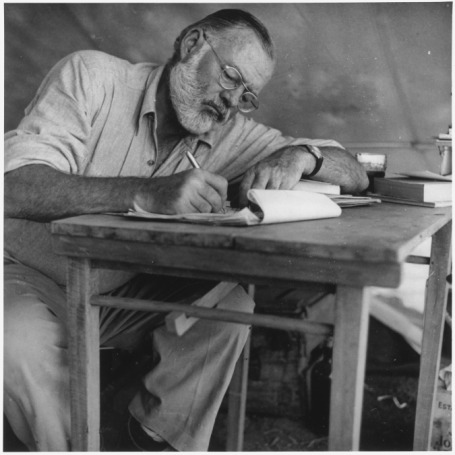Just like the name implies, flash fiction is short enough to read in an instant. But if you’re not reading it, here’s why you should be.
Opinions vary on what length qualifies as flash fiction. Some markets say 300 words max, some say 500, others say 1,000. Whatever the case may be, flash fiction has to be really short—which is not to say incomplete. Rather, many flash pieces still have the elements of traditional literature (character, plot, conflict, setting), only they’re condensed. Think of them like shorter short stories.
The form has existed for quite a while, though it wasn’t known as “flash fiction” until 1992, when James Thomas, Denise Thomas, and Tom Hazuka published their anthology Flash Fiction: 72 Very Short Stories. Despite the its relative mainstream obscurity, many high-profile authors have written flash fiction, including Kurt Vonnegut, Ray Bradbury, Joyce Carol Oats, Ernest Hemingway, and H.P. Lovecraft.
In many ways, flash fiction bears a strong resemblance to poetry. Some of my favorite flash pieces create a mood or feeling instead of focusing on narrative, just as some poems do. Others feature complete stories with beginnings, middles, and ends. It’s a flexible form, and one I enjoy very much. In fact, I included three flash pieces in my short fiction collection, Monsters at Dusk.
Thanks to the internet, flash fiction’s popularity has only grown. There are numerous online magazines devoted solely to flash fiction, and quite a few popular markets that publish flash from time to time. Just to name a few: Apex Magazine, Beneath Ceaseless Skies, Fantasy & Science Fiction, Flash Fiction Online, and NANO Fiction.
If you’d like to challenge yourself as a writer, flash is a great way to do it. It might sound easy to write 500 words, but when you sit down and think about all the components of a good story, it can be difficult to cram everything in.
Furthermore, with such limited space to work with, your language must be razor sharp. In general, readers are far more forgiving of bland language in long-form narratives. It’s easy to skip a poorly-written section of a novel. But when a piece only lasts about a page or two, that poor writing sticks out like a fly in your drink.
Flash fiction is a unique form which will, in my opinion, only grow in popularity in the future. Word counts are shrinking, attention spans are decreasing, and concision is becoming more and more essential. Try some flash fiction and see if you agree!
Kyle A. Massa is the author of the short fiction collection Monsters at Dusk and the novel Gerald Barkley Rocks. His stories have appeared in numerous online magazines, including Allegory, Chantwood, and Dark Fire Fiction. He lives somewhere in upstate New York with his wife and their two cats.




